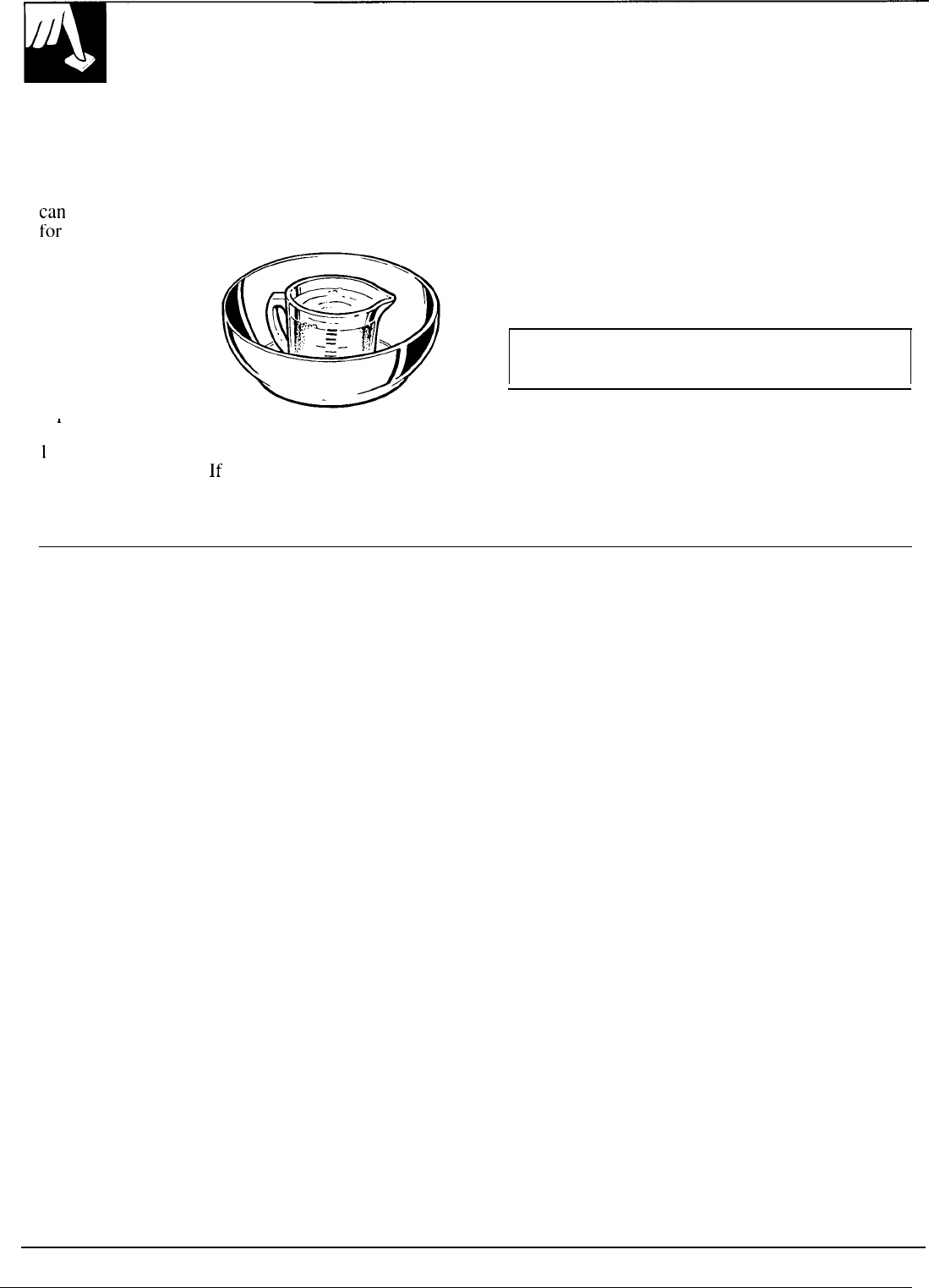
MICROWAVING TIPS
● Make sure all cookware used in your microwave
oven is suitable for microwaving. Most glass
casseroles, cooking dishes, measuring cups, custard
cups, pottery or china dinnerware which does not
have metallic trim or glaze with a metallic sheen
can
be used. Some cookware is labeled “suitable
for
microwaving.”
If you are not
sure if a dish is
microwave-safe,
use this test:
Place in
the oven both the dish
you are testing and
a glass measuring
cup filled with one
CUD water—set the
,
measuring cup either in or next to the dish. Microwave
1
minute at high. If the dish heats, it should not be
used for microwaving. If the dish remains cool and
only the water in the cup heats, then the dish is
microwave-safe.
● Paper towels, waxed paper and plastic wrap can
be used to cover dishes in order to retain moisture and
prevent spattering. Be sure to vent plastic wrap so
steam can escape.
● Some microwaved foods require stirring, rotating
or rearranging. Check the Cooking Guide.
● Steam builds up pressure in foods which are
tightly covered by a skin or membrane. Pierce
potatoes, egg yolks and chicken livers to prevent
bursting.
If you use a meat thermometer while cooking, make
sure it is safe for use in microwave ovens.
AUTOMATIC FAN FEATURE
Cooking appliances installed under the oven may, under some heavy usage
conditions, cause temperatures high enough to overheat some internal parts
of the microwave oven.
To prevent overheating from taking place, the exhaust fan is designed
to automatically turn on at a low speed if excessive temperatures occur.
Should this happen, the fan cannot be manually turned off, but it will
automatically turn off when the internal parts have cooled. The fan may
stay on up to approximately 30 minutes after the range and microwave
oven controls have been turned off.
6


















